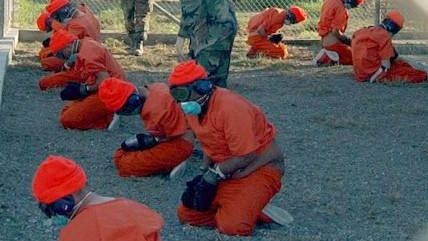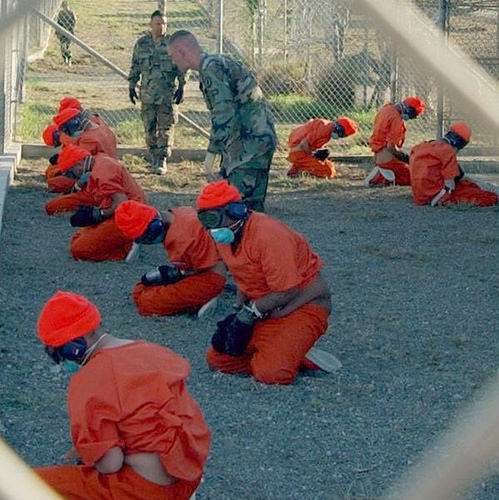Final Three Uighur Prisoners Released From Guantanamo Bay


The final three Uighur prisoners have been freed from the prison at Guantanamo Bay, a move that has been described by the Pentagon as a "significant milestone."
The men had been detained for over a decade, despite the fact that military assessments found that they had no ties to Al Qaeda or the Taliban. Although a federal judge ruled that the men had been unlawfully detained in 2008 their release was delayed because of what The Washington Post described as "repeated legal wrangling and attempts to find a country willing to accept them." Slovakia has accepted the men, and the Slovakian interior minister has said that they are not terror suspects. According to the BBC, the U.S. does not "repatriate Uighur detainees to China because of the risk they could be mistreated."
The BBC notes that there are still 155 prisoners at Guantanamo Bay, a reduction from over 750.
While he was a presidential candidate then-Senator Obama promised that he would close the prison at Guantanamo Bay when he became president. However, as ABC's Matt Negrin explained back in July, Obama has faced opposition to closing the prison in Congress, another reminder that promises are easier to make than they are to keep:
Obama has run into plenty of opposition in Congress. Lawmakers passed a bill preventing federal money from being used to transfer Guantanamo prisoners to the United States. Obama signed that bill into law, even as he issued a statement that disapproved of it. The provision was part of a bigger military bill that Obama said was too important not to sign.
Republicans, in particular, say that Guantanamo must stay open to keep terrorists there.
Last week, Obama signed the NDAA for FY 2014, which included the easing of restrictions on transferring detainees into custody abroad. The ban on transferring Guantanamo Bay detainees to the U.S. is still in place.
In a statement on the signing of the bill Obama said:
The continued operation of the facility weakens our national security by draining resources, damaging our relationships with key allies and partners and emboldening violent extremists.
For the past several years, the Congress has enacted unwarranted and burdensome restrictions that have impeded my ability to transfer detainees from Guantanamo. Earlier this year I again called upon the Congress to lift these restrictions and, in this bill, the Congress has taken a positive step in that direction.
and:
The detention facility at Guantanamo continues to impose significant costs on the American people.
More from Reason.com on Guantanamo Bay here.


Show Comments (23)